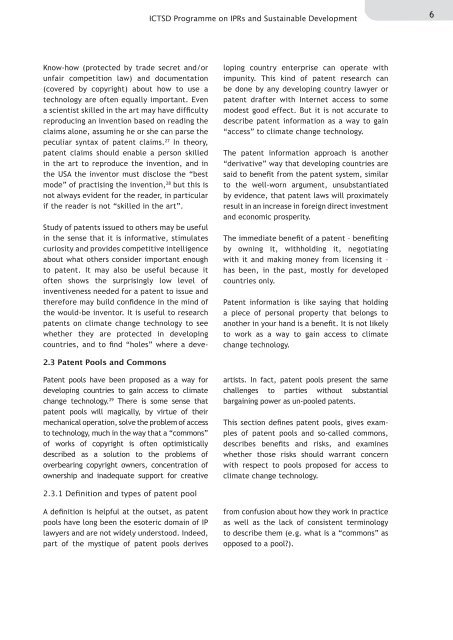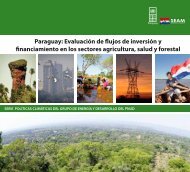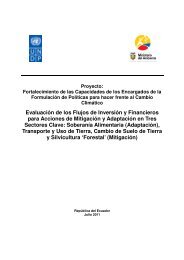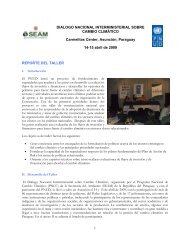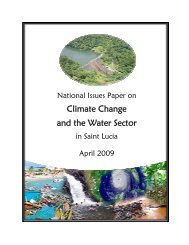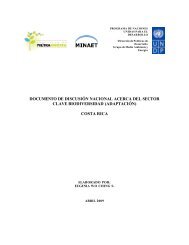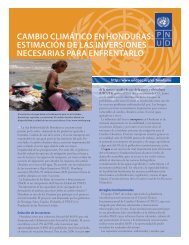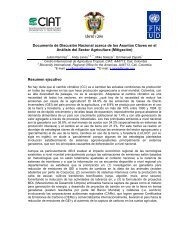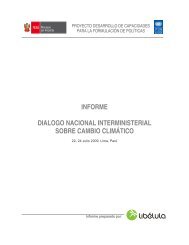View Publication - UNDPCC.org
View Publication - UNDPCC.org
View Publication - UNDPCC.org
You also want an ePaper? Increase the reach of your titles
YUMPU automatically turns print PDFs into web optimized ePapers that Google loves.
ICTSD Programme on IPRs and Sustainable Development<br />
6<br />
Know-how (protected by trade secret and/or<br />
unfair competition law) and documentation<br />
(covered by copyright) about how to use a<br />
technology are often equally important. Even<br />
a scientist skilled in the art may have difficulty<br />
reproducing an invention based on reading the<br />
claims alone, assuming he or she can parse the<br />
peculiar syntax of patent claims. 27 In theory,<br />
patent claims should enable a person skilled<br />
in the art to reproduce the invention, and in<br />
the USA the inventor must disclose the “best<br />
mode” of practising the invention, 28 but this is<br />
not always evident for the reader, in particular<br />
if the reader is not “skilled in the art”.<br />
Study of patents issued to others may be useful<br />
in the sense that it is informative, stimulates<br />
curiosity and provides competitive intelligence<br />
about what others consider important enough<br />
to patent. It may also be useful because it<br />
often shows the surprisingly low level of<br />
inventiveness needed for a patent to issue and<br />
therefore may build confidence in the mind of<br />
the would-be inventor. It is useful to research<br />
patents on climate change technology to see<br />
whether they are protected in developing<br />
countries, and to find “holes” where a developing<br />
country enterprise can operate with<br />
impunity. This kind of patent research can<br />
be done by any developing country lawyer or<br />
patent drafter with Internet access to some<br />
modest good effect. But it is not accurate to<br />
describe patent information as a way to gain<br />
“access” to climate change technology.<br />
The patent information approach is another<br />
“derivative” way that developing countries are<br />
said to benefit from the patent system, similar<br />
to the well-worn argument, unsubstantiated<br />
by evidence, that patent laws will proximately<br />
result in an increase in foreign direct investment<br />
and economic prosperity.<br />
The immediate benefit of a patent – benefiting<br />
by owning it, withholding it, negotiating<br />
with it and making money from licensing it –<br />
has been, in the past, mostly for developed<br />
countries only.<br />
Patent information is like saying that holding<br />
a piece of personal property that belongs to<br />
another in your hand is a benefit. It is not likely<br />
to work as a way to gain access to climate<br />
change technology.<br />
2.3 Patent Pools and Commons<br />
Patent pools have been proposed as a way for<br />
developing countries to gain access to climate<br />
change technology. 29 There is some sense that<br />
patent pools will magically, by virtue of their<br />
mechanical operation, solve the problem of access<br />
to technology, much in the way that a “commons”<br />
of works of copyright is often optimistically<br />
described as a solution to the problems of<br />
overbearing copyright owners, concentration of<br />
ownership and inadequate support for creative<br />
artists. In fact, patent pools present the same<br />
challenges to parties without substantial<br />
bargaining power as un-pooled patents.<br />
This section defines patent pools, gives examples<br />
of patent pools and so-called commons,<br />
describes benefits and risks, and examines<br />
whether those risks should warrant concern<br />
with respect to pools proposed for access to<br />
climate change technology.<br />
2.3.1 Definition and types of patent pool<br />
A definition is helpful at the outset, as patent<br />
pools have long been the esoteric domain of IP<br />
lawyers and are not widely understood. Indeed,<br />
part of the mystique of patent pools derives<br />
from confusion about how they work in practice<br />
as well as the lack of consistent terminology<br />
to describe them (e.g. what is a “commons” as<br />
opposed to a pool?).


